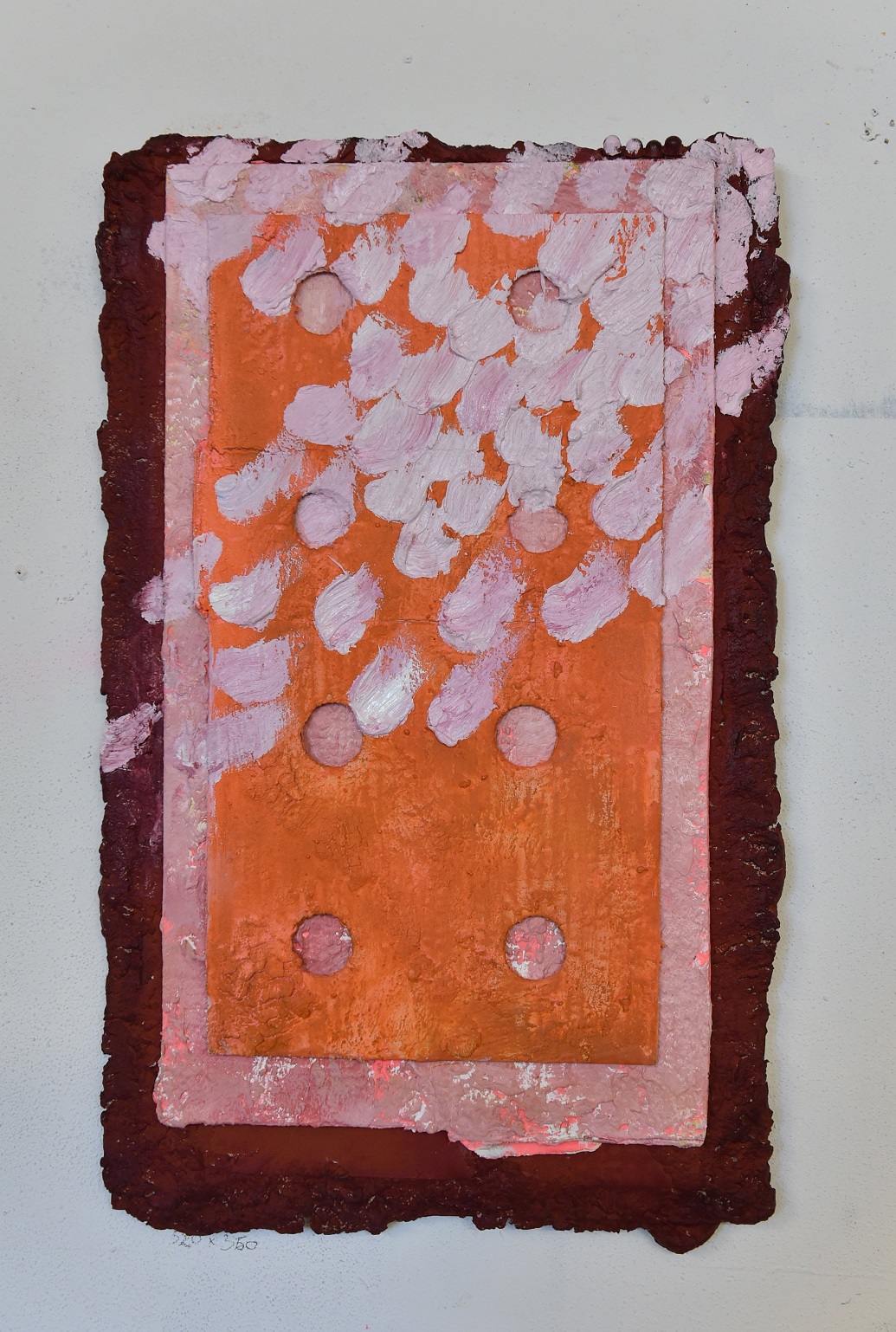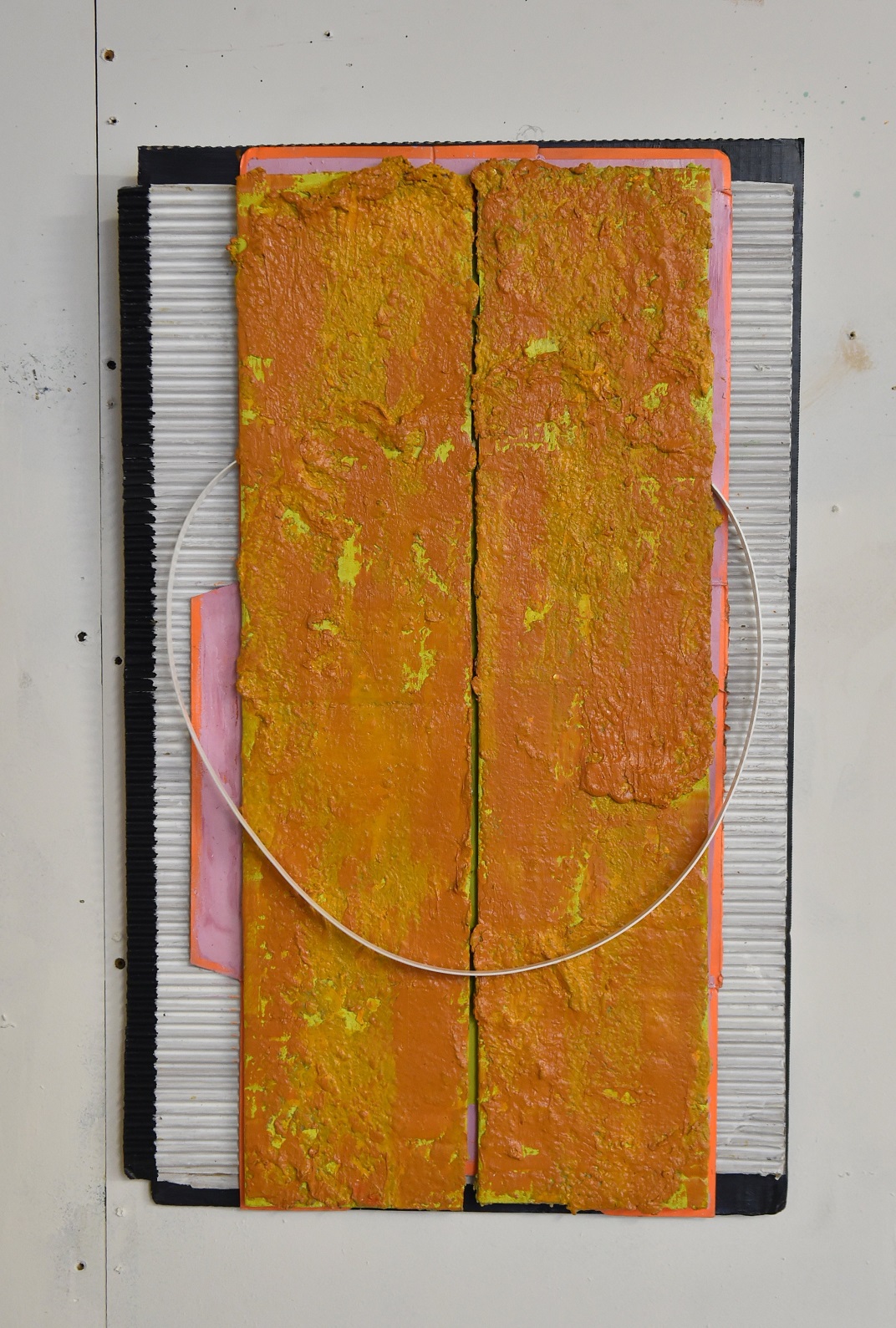
Linda Cook is not your average dumpster diver.
"People probably think I’m a crazy lady, going dumpster diving in Dunedin, like a homeless person."
But the Dunedin artist’s dumpster diving has a different purpose. Rather than a search for food or shelter, it is a search for cardboard and reusable materials.
"I think that's very relevant today that we make things from what has been cast aside and see that they still have relevance."
She despairs at the consumerism of today’s society.
"We just buy, buy, buy, and just throw things away, discard them.
"We need to slow that down a bit, we need to start reusing and reforming and look at what we have at hand rather than going out and buying another one."
Cook has also found herself "seduced" by the surface of cardboard.
"It has a lot to offer.
"It’s almost skin-like, it gives when you touch it, it’s warm."
The more unusual shaped the found item the better — inserts in boxes are the best — as they often suggest what she could do with it.
"The cardboard shapes inform my work hugely, whether I leave them apparent or cover them in a mixture of powdered clay and paint.
"Some of it is concealed, some of it is apparent, there is humour involved, but there is also an edge to them that questions the viewer on what do we want from painting.
"Do we want something recognisable or are we happy to be swayed by colour and texture and shape?"
Others might see rubbish, Cook sees potential.

Responding to the environment in her work is important.
While cardboard is not a new medium for a painter to use, Cook has done a lot of research into the best way to avoid it absorbing the paint.
She has found some industrial concrete sealers that do the job and makes her own gesso primer.
Working out the best ways to attach layers of cardboard together to prevent it from warping has been another challenge.
Using plaster and glue, powder clay and white pigment, sometimes rabbit skin glue, she has found a system that works.
"It’s like making plywood.
"I clamp it together and build up the layers so they are secure and sometimes if it’s a large work I’ll put bracing between the layers."
It is one of these works that has attracted the eye of the Parkin Drawing Prize judges and saw her make the finals of the competition.
"It’s layered cardboard and shape with minimal colour. In saying that, the cardboard has its own colour and texture."
While building up the surfaces, securing them and then overlapping the various forms for the work, she found her plans for the work changed.
"I had intended to paint over it but when I looked at it I could see that it was done.
"I had to leave it for a few days and go, OK it is done.
"That is what I mean, the work often informs me."
She is always working on at least three projects at a time — "that way you don’t get too obsessed about one" — and also does works on paper, which she usually hangs on her walls as "trigger works".
"I thought it was a great way of going in and emptying your head and putting it aside but keeping it in view so you can refer to it, even if subconsciously.

The other way of doing it is sitting in a cafe reading a book.
"It is possibly one of my most creative moments and being in the studio, it separates me out from all those responsibilities."
It is the many adult responsibilities that resulted in Cook, who is from the southeast of England, taking time to concentrate on her art even though she has always made things.
As a child she liked playing in "muck".
"I am a maker."
Her interest in art continued — one of her first jobs was in an art supply shop — but being an artist was not considered a viable career option by her family then.
"I’d always wanted to go to art school.
"I had to put it on hold for a while.
"I travelled a lot, lived in Botswana and Zambia.
"Had children and so on."
It was not until the family, moved to New Zealand seeking a "politically safe place to be" that the opportunity to go to university arose.
"I was living in Auckland at the time, working at the university in the offices and decided there was the opportunity to study art history.
"I got so embroiled in it. I realised it was very much who I am so I thought I’d discover myself rather than just being a domestic."
After completing an art history degree and then a bachelor of design in painting, Cook spent the next 20 years debating whether or not to do a masters degree or just keep painting.
"I decided I really needed to hone my thinking."

"I did it for 18 months before we decided to relocate.
"We’ve been here for four years more or less."
It is a decision she has not regretted.
"It’s got relevant history, it’s quite rugged, it’s a good place to take time for yourself and think things through.
"It’s friendly, it’s warm, it’s safe."
When Cook first started painting she was committed to abstraction.
"When I finished, I drifted into abstracting the landscape.
"I was on Waiheke then and started looking at nature and what was around me, doing very abstract images of the trees and sky."
When she began doing her masters she realised what really attracted her was the materials, the "matter" and how it can be so "bodily".
"So I delved into pure abstraction again. No element of recognisable reference.
"I know a lot of people want a point of reference, something to anchor their eye on, but my works require you to find your own reference point, form, shape, colour, texture — all of those things draw on our own minds and creativity to find our own connection."
Part of pure abstraction’s attraction has been how it is dominated by males and masculinity.
"I wanted to address that and make my works so they are not gender specific and not reference age or gender, they are of themselves."
Doing the study later in life meant she was able to draw on her experiences while travelling and living overseas.
"They have all added relevance to the work, giving me confidence to move outside expectations of a woman painter."
While she does some work at home, Cook has a studio in the central city.

"I think it is key for making, whether you are out having coffee or in the studio, it’s important to engage the eye constantly and take the time to look."
Having a space where she can make a mess and experiment is important to her but she is aware that time is a luxury many painters do not get.
"I just keep making, I go in several times a week, moving things around, putting paint on, taking paint off.
Some works take time — four to six weeks — and she will sometimes put a work aside and go back to it when the mood takes her.
"It’s the balance between all of those factors, interest, colour and shape you feel will engage the eye ... "
Cook says her works challenge commercial galleries who struggle with the use of cardboard but she is not going to change her focus.
"I’m anti-capitalist anyway.
"My work is a challenge visually, its not a typical commercial retail offering.
"It’s not a pretty picture, a landscape. My work is my work.
"I’m not going to paint for prescription."
Cook admits that long term her use of cardboard might change but politically her work will always challenge what the system sees as art.
At present she feels very embroiled in what she is doing .
"The commercial realm should not direct the outcome."
— The winner of the Parkin Prize will be announced NZ Academy of Fine Arts in Wellington, August 5.
TO SEE
The Parkin Drawing Prize exhibition, NZ Academy of Fine Arts in Wellington, until September 1.












